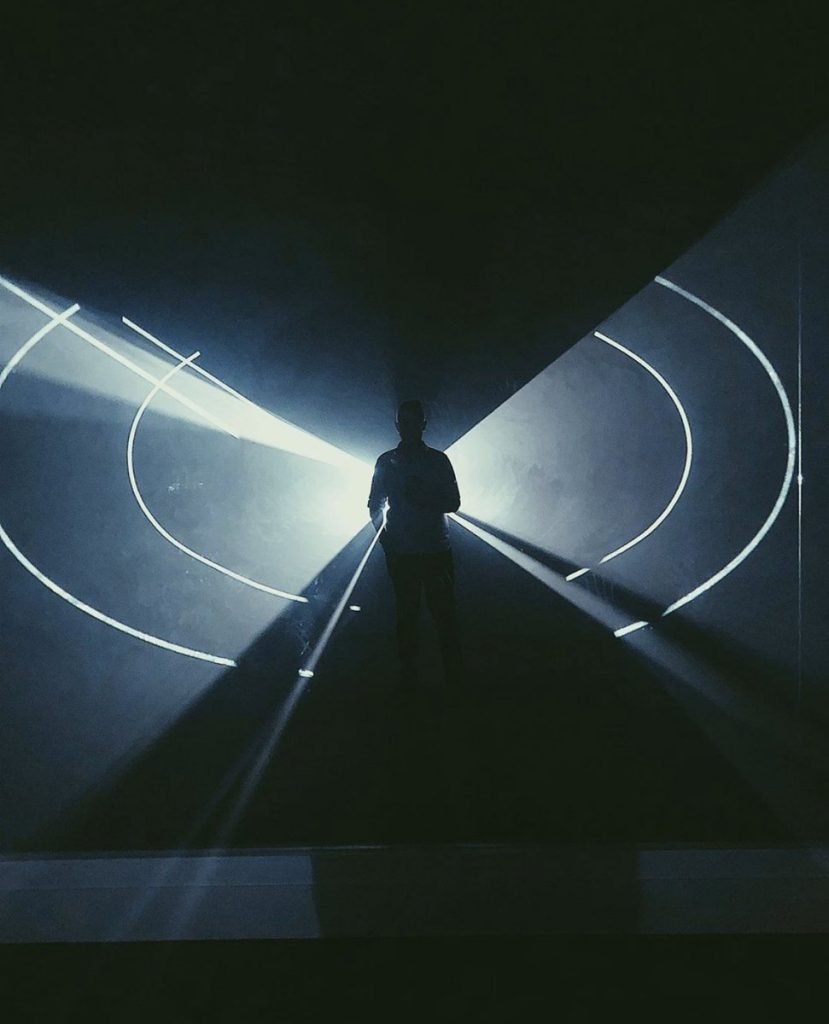At the Albright-Knox Museum, I saw Anthony McCall’s installation “Dark Rooms, Solid Light.” This mesmerizing exhibit consists of rotating cones of light emerging from a projector. The audience may walk through, intercept and interact with the paths of light. I believe that in creating it McCall was the sole artist. He had iterated and developed upon his ideas for decades. While it may not initially appear to involve computing, McCall actually programmed the pattern of the light’s movements (although I am unsure what software was used). He had done this to create an effect of a transcendence of time.
This artwork is inspirational to me for that reason – McCall can cause people to lose track of time and lose themselves in his work. He is able to give life to something as technical and removed as light and computing. He may have been inspired by contemporaneous works of the time that were able to utilize new technological inventions in order to bring their creations to life. For example, Nam June Paik creatively used new technologies to produce his work.
I think that this work may lead to new advancements in the way that people utilize computational art. Many people likely believe that programming only generates two dimensional works you view on a screen, but McCall has shown that it can be used to create living, interactive experiences.

![[OLD FALL 2020] 15-104 • Introduction to Computing for Creative Practice](wp-content/uploads/2021/09/stop-banner.png)